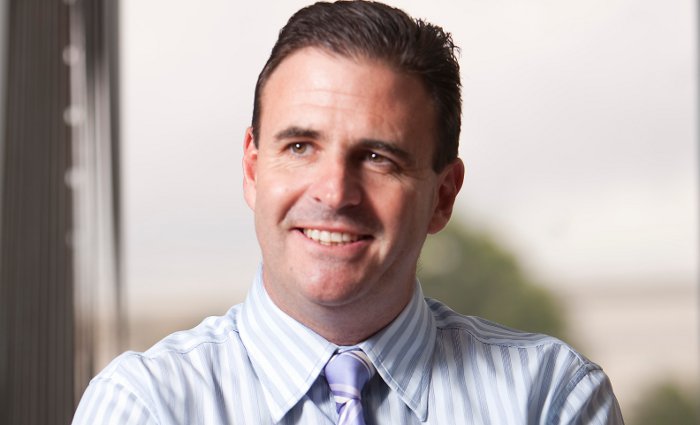
Opus has dragged itself back into profit for the first time since the McPherson’s merger and will spend $3.9m upgrading equipment to fuel growth.
Today’s $4.67m half-year profit is a far cry from the $11.8m loss a year ago (and $42m 2013-14 full year loss) when Opus was laden with debt, losing money, and had just been bought out by Hong Kong’s 1010 Printing.
Revenue, up two per cent to $55.53m, and EBITDA, up 27 per cent to $6.13m, are also in positive territory, and the company is still debt-free from the 1010 takeover.
[Related: The ups and downs of Opus]
Investors are liking the return to profit and the one cent per share dividend, Opus’ first ever, shooting the share price up 15 per cent to 46c.
Executive chairman Richard Celarc says the dividend payment, which is 20 per cent of profit, is a show of faith in the business and more are planned when results allow.
The return to profit and debt-free status has allowed for reinvestment in the business with new kit aimed at improving efficiency, turnaround and margin, but ‘balanced carefully so as not to add capacity’.
Opus has this year installed four new Fuji Xerox digital printers, including a 1400 web press at Canprint, and an iGen 4 and Impika web press at Ligare in Sydney.
Wide format business Cactus also installed a new five metre Fujifilm Uvistar Pro 8 in April.
The $3.9m earmarked for this year will be spent on a major new digital machine in the next two weeks, and later on other digital printers, offset presses, digital and offset finishing, and digital wide format equipment.
Opus also signed a heads agreement a week ago to sell its New Zealand outdoor business Omnigraphics to a ‘second tier’ local outdoor printer, with the sale expected to close early September.
Chief executive Cliff Brigstocke says the NZ outdoor market had ‘underperformed’ and was largely responsible for a six per cent slide in EBITDA for Opus outdoor operations, but this is not why Omnigraphics is being sold.
“We were not looking to sell it but we were approached by a number of interested buyers with good offers,” he says.
“The Australian outdoor market is much bigger and that is where we want to focus our business.
“There are not the cross-connections in outdoor that exist in publishing, so the content and client base is completely different.”
Ligare will continue to operate its small Auckland commercial printing operation.
Revenue for Opus’ outdoor operations increased one per cent to $10.5m with EBITDA down six per cent to $1.26m, while the publishing arm boosted sales two per cent to $45m with EBITDA up 25 per cent to $6.88m.
[Related: More financial reports coverage]
Brigstocke says restructuring to right-size the business, flatten management structure and focus on core strengths has made the business ‘leaner and meaner’ and brought it back into profit.
“Free of the shackles of a high debt load and having completed operational restructuring, [we] have started to produce benefits for customers and shareholders,” he says.
“We will increasingly be a group that delivers high quality services faster, that drives greater efficiency in our processes.
Celarc says he and Brigstocke have returned to 'a much more hands on approach with him overseeing Ligare and Canprint and Brigstocke McPherson's, while Cactus is run under the leadership of general managers Keith Ferrel and Nigel Spicer 'two of the best in the industry'.
"This is a proven formula in many ways and how we used to operate before our public listing," he says.
Brigstocke says the resurgent book market is helping drive growth with the shift to on-demand digital printing bringing work back from overseas.
He says Opus has won several contracts to print for clients that had previously used overseas suppliers, and is doing more work for existing clients that sourced some print offshore.
“We are making it easier for them to print locally with fast turnaround at attractive prices. Our equipment investments are aimed at helping our clients improve their speed to market,” he says.
Brigstocke says Opus is also having success bundling its offering with 1010, having Opus provide short-run on-demand work locally and the long run work done offshore.
He says this will not mean any more work will be outsourced from Australia and anything that would have been sent overseas had been moved long before the 1010 investment.
“There is a certain run length that just needs to be done offshore. We do need both offset and digital in Australia, but digital is certainly growing more rapidly,” he says.
Brigstocke says Opus has also ditched low margin work such as directories, self-published books and is now ‘moving to a growth phase’.
“We will be working even harder in the next six months, focused on growth and keeping the company sustainable,” he says.
Comment below to have your say on this story.
If you have a news story or tip-off, get in touch at editorial@sprinter.com.au.
Sign up to the Sprinter newsletter



